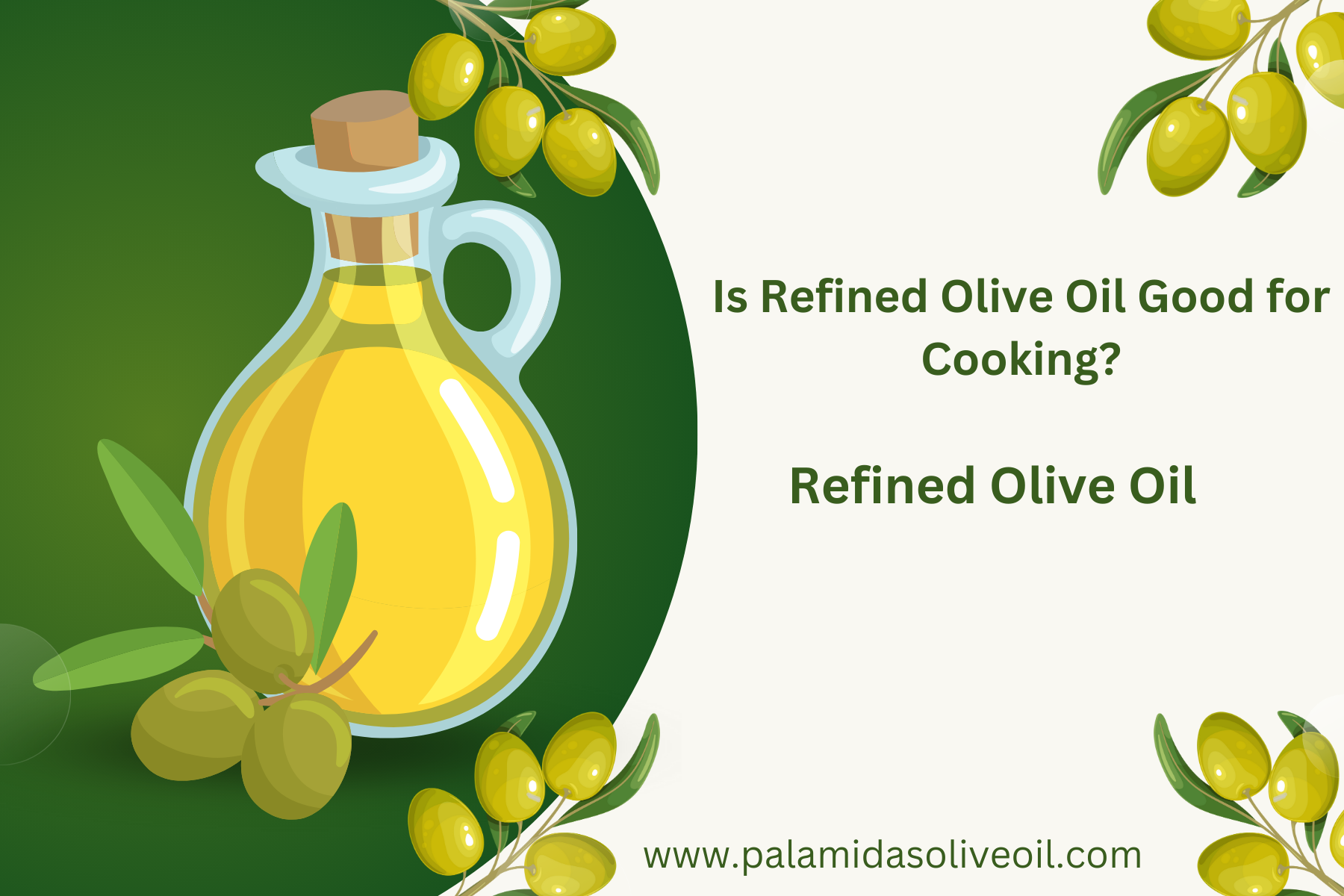Is Refined Olive Oil Good for Cooking?
Refined olive oil is a popular cooking oil known for its versatility and mild flavor. There are certain aspects to consider when using refined olive oil for cooking. Dr. Guasch-Ferré spearheaded a research study published in 2022, which revealed that individuals who incorporated over half a tablespoon of olive oil into their daily diet experienced a significant reduction of approximately 19 percent in the likelihood of succumbing to cardiovascular disease, as compared to those who seldom or never consumed olive oil. Apart from being a versatile cooking oil, olive oil also promotes overall bodily well-being. Its consumption ensures the provision of vital minerals to the body without posing a risk of weight gain.
What is Refined Olive Oil?
Refined olive oil is a type of olive oil that undergoes a process known as refining. During refining, the oil is carefully treated to remove impurities and enhance its stability. This process involves using mechanical, chemical, and/or thermal methods to extract any remaining solid particles and reduce the acidity level. Refined olive oil has a milder flavor compared to extra virgin olive oil, making it suitable for various cooking applications. It also has a higher smoke point, allowing it to withstand higher cooking temperatures without breaking down. Refined olive oil is commonly used for frying, baking, and other high-heat cooking methods.
Explain the smoke point of refined olive oil, which refers to the temperature at which it starts to produce smoke during cooking. Emphasize that refined olive oil has a higher smoke point compared to extra virgin olive oil, making it more suitable for high-heat cooking methods like frying or sautéing.
How is refined olive oil produced and processed?
Extraction: Ripe olives are harvested and washed to remove any dirt or debris. The olives are then crushed into a paste, usually using mechanical methods, to release the oil.
Decantation: The olive paste is typically subjected to centrifugation, which separates the oil from the solids and water. This initial extraction yields extra virgin olive oil.
Refining: To produce refined olive oil, the extra virgin olive oil undergoes a refining process. This involves refining techniques such as neutralization, degumming, and filtration to remove impurities, including free fatty acids, natural waxes, and pigments. Chemical solvents may be used, but they are subsequently eliminated through additional processing.
Filtration: The oil is filtered to further eliminate any remaining solid particles and improve its clarity.
Optional Blending: Refined
olive oil may be blended with a small portion of extra virgin olive oil to
enhance its flavor and aroma.
Quality Control: Throughout the process, strict quality control measures are implemented to ensure that the refined olive oil meets regulatory standards for acidity, stability, and sensory characteristics.
How should refined olive oil be stored to maintain its quality and freshness?
Cool and Dark Location: Store refined olive oil in a cool and dark place, away from direct sunlight and heat sources like stovetops or ovens. Excessive heat and light exposure can accelerate the oxidation process and degrade the oil's quality.
Airtight Container: Transfer the refined olive oil to airtight containers made of glass or dark-colored materials to protect it from air exposure. Oxygen can contribute to the oxidation of the oil, leading to rancidity.
Avoid Temperature Fluctuations: Keep the storage area temperature consistent, preferably between 14°C and 18°C (57°F and 64°F). Fluctuations in temperature can negatively impact the oil's stability and flavour.
Minimize Air Exposure: When using refined olive oil, ensure that the container is tightly sealed after each use. Limiting air exposure helps preserve the oil's freshness and prevents oxidation.
Use within a Reasonable Timeframe: While refined olive oil generally has a longer shelf life compared to extra virgin olive oil, it is still recommended to use it within a reasonable timeframe. Check the product's expiration date and try to consume it before that time.
Avoid Storing Near Strong Odors: Refined olive oil can absorb strong odors from its surroundings, affecting its flavor. Keep it away from pungent substances or strong-smelling spices.
How to use Refined Olive Oil for cooking?
High-Heat Cooking: It has a higher smoke point compared to extra virgin olive oil, making it suitable for high-heat cooking methods such as frying, sautéing, and stir-frying. Its mild flavor allows the natural taste of the ingredients to shine.
Baking and Roasting: Refined olive oil can be used in baking recipes that call for oil, such as cakes, muffins, and bread. It adds moisture and a subtle flavor. It is also ideal for roasting vegetables or meats, providing a delicate touch to the dish.
Salad Dressings and Marinades: While extra virgin olive oil is often preferred for salad dressings, refined olive oil can be used as a lighter alternative. Combine it with vinegar or citrus juice, herbs, and seasonings to create flavorful dressings or marinades.
Grilling: It can be brushed onto meats, seafood, or vegetables before grilling to prevent sticking and add a hint of flavor. Its higher smoke point makes it suitable for grilling at higher temperatures.
Neutral Base for Cooking: Refined olive oil's mild flavor
and versatility make it a reliable choice as a neutral base oil in various
recipes, allowing the other ingredients to take the spotlight.
Palamidas Olive Oil is a brand
that offers various qualities of olive oil. Among them, refined olive oil is
one of the options. Refined olive oil is beneficial for health and helps
prevent illnesses. It can also be used for cooking purposes. If you want to purchase
just email info@palamidas.com or call tel:02366060661.




Comments
Post a Comment